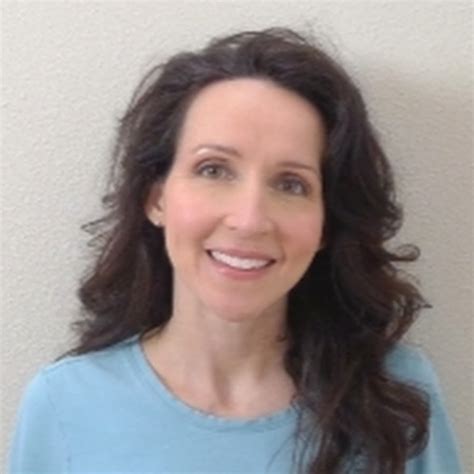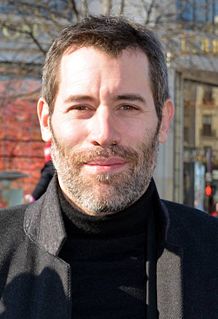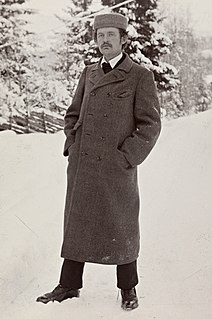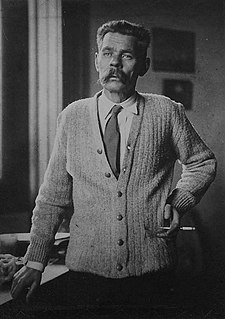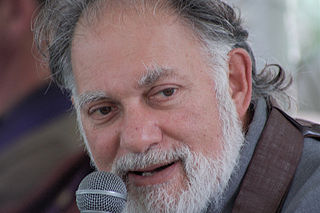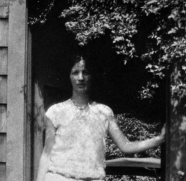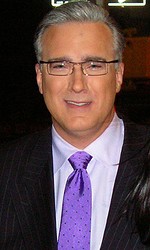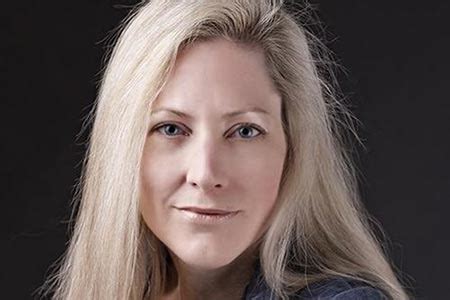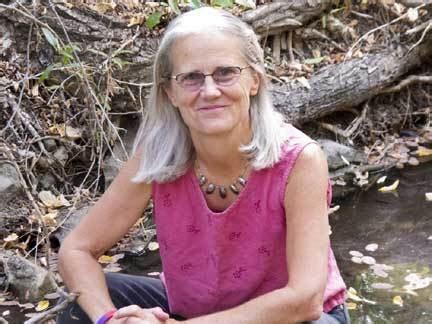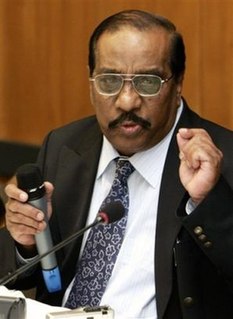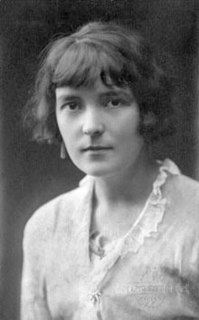Top 1200 Illness And Death Quotes & Sayings - Page 3
Explore popular Illness And Death quotes.
Last updated on November 25, 2024.
I was in Korea. I've noticed all my life I see elderly people who have been close to death in an illness and they're absolutely cured and they say, now I know how to live my life. I've seen death. That happened to me when I was 19. It was a terrible, terrifying thing. And I live my life like those people decided to do when they were old. So, since I was 19, I've had the most fun possible every single day, even when I had a rough life. It was the army which taught me about life, and the theater which taught me how good it could be.
True love, it's like an illness. I never understood it before. In books and plays. Poems. I never understood what drove otherwise intelligent, right-thinking people to do such extravagant, irrational things. Now I do. It's an illness. You can catch it when you least expect. There's no known cure. And sometimes, in its most extreme, it's fatal.
There's no such thing as mental illness. We're all mentally ill and we're all haunted by something, and some people manage to find a way to ride it out so that they don't wind up needing extra help. So I think that "mental illness," as a term, is garbage. Everybody is in various states of needing to transcend something.
Tucker was my safe place for three years, my secure dock in a sea of indecision as I dealt with my father's illness and death. And now I had to sink or swim. It was time to let go...and move on. Slowly, I pushed off from the dock that was Tucker Montgomery and prepared to swim...praying I wouldn't drown.
For me, Yves Saint Laurent is a hero because he fought his whole life against illness. Maybe the only way to fight this illness for him was to make it positive with creation. Otherwise he would have been lonely or in the hospital. He had so many issues with alcohol, drugs, and everything, this explains a lot about his necessity to create.
As deaths have accumulated I have begun to think of life and death as a set of balance scales. When one is young, the scale is heavily tipped toward the living. With the first death, the first consciousness of death, the counter scale begins to fall. Death by death, the scales shift weight until what was unthinkable becomes merely a matter of gravity and the fall into death becomes an easy step.
Countries with the best-resourced medical services have the best outcomes for physical illness (it is better to have a heart attack in Washington or London than in rural Africa) whereas precisely the opposite is the case for mental illness (developing nations with limited psychiatric resources have better outcomes and lower suicide rates).
My fear of life is necessary to me, as is my illness. Without anxiety and illness, I am a ship without a rudder. My art is grounded in reflections over being different from others. My sufferings are part of my self and my art. They are indistinguishable from me, and their destruction would destroy my art. I want to keep those sufferings
When we bear witness, when we become the situation - homelessness, poverty, illness, violence, death - the right action arises by itself. We don't have to worry about what to do. We don't have to figure out solutions ahead of time. Peacemaking is the functioning of bearing witness. Once we listen with our entire body and mind, loving action arises.
Most observers of the French Revolution, especially the clever and noble ones, have explained it as a life-threatening and contagious illness. They have remained standing with the symptoms and have interpreted these in manifold and contrary ways. Some have regarded it as a merely local ill. The most ingenious opponents have pressed for castration. They well noticed that this alleged illness is nothing other than the crisis of beginning puberty.
It is not possible, for a poet, writing in any language, to protect himself from the tragic elements in human life.... [ellipsis in source] Illness, old age, and death--subjects as ancient as humanity--these are the subjects that the poet must speak of very nearly from the first moment that he begins to speak.
The religious man, the mystic, tries to explore the mystery of death. In exploring the mystery of death, he inevitably comes to know what life is, what love is. Those are not his goals. His goal is to penetrate death, because there seems to be nothing more mysterious than death. Love has some mystery because of death, and life also has some mystery because of death.
Have you noticed that only in time of illness or disaster or death are people real? I remember at the time of the wreck-- people were so kind and helpful and solid. Everyone pretended that our lives until that moment had been every bit as real as the moment itself and that the future must be real too, when the truth was that our reality had been purchased only by Lyell's death. In another hour or so we had all faded out again and gone our dim ways.
[There are, in us] possibilities that take our breath away, and show a world wider than either physics or philistine ethics can imagine. Here is a world in which all is well, in spite of certain forms of death, death of hope, death of strength, death of responsibility, of fear and wrong, death of everything that paganism, naturalism and legalism pin their trust on.
Once and for all, people must understand that addiction is a disease. It’s critical if we’re going to effectively prevent and treat addiction. Accepting that addiction is an illness will transform our approach to public policy, research, insurance, and criminality; it will change how we feel about addicts, and how they feel about themselves. There’s another essential reason why we must understand that addiction is an illness and not just bad behavior: We punish bad behavior. We treat illness.
Manic-depression distorts moods and thoughts, incites dreadful behaviors, destroys the basis of rational thought, and too often erodes the desire and will to live. It is an illness that is biological in its origins, yet one that feels psychological in the experience of it, an illness that is unique in conferring advantage and pleasure, yet one that brings in its wake almost unendurable suffering and, not infrequently, suicide.
I think mental illness or madness can be an escape also. People don't develop a mental illness because they are in the happiest of situations, usually. One doctor observed that it was rare when people were rich to become schizophrenic. If they were poor or didn't have too much money, then it was more likely.
The Project Angel Food Program's mission is to nourish the body and spirit of men, women and children affected by HIV/AIDS and other serious illness. The Project Angel Food Program delivers free and nutritious meals prepared with love. We act out of a sense of urgency because hunger and illness cannot wait.
Often, when you're growing up, you don't know what's wrong. We don't talk openly enough about mental illness. How do you know - especially today with the incredibly high stress teens are put under during high school - if you have depression or if you have a mental illness or if you have anxiety? You don't know, because you've never seen it.
Laughter. Yes, laughter is the Zen attitude towards death and towards life too, because life and death are not separate. Whatsoever is your attitude towards life will be your attitude towards death, because death comes as the ultimate flowering of life. Life exists for death. Life exists through death. Without death there will be no life at all. Death is not the end but the culmination, the crescendo. Death is not the enemy it is the friend. It makes life possible.
We tend to suffer from the illusion that we are capable of dying for a belief or theory. What Hagakure is insisting is that even in merciless death, a futile death that knows neither flower nor fruit has dignity as the death of a human being. If we value so highly the dignity of life, how can we not also value the dignity of death? No death may be called futile.
The ibtilaa' (testing) of the believer is like medicine for him. It cures him from illness. Had the illness remained it would destroy him or diminish his reward and level (in the hereafter). The tests and the trials extract these illnesses from him and prepare him for the perfect reward and the highest of degrees (in the life to come).
Jesus doesn't give an explanation for the pain and sorrow of the world. He comes where the pain is most acute and takes it upon himself. Jesus doesn't explain why there is suffering, illness, and death in the world. He brings healing and hope. He doesn't allow the problem of evil to be the subject of a seminar. He allows evil to do its worst to him. He exhausts it, drains its power, and emerges with new life.
What we put into every moment is all we have. You can drug yourself to death or you can smoke yourself to death or eat yourself to death, or you can do everything right and be healthy and then get hit by a car. Life is so great, such a neat thing, and yet all during it we have to face death, which can make you nuts and depressed.
We achieve active mastery over illness and death by delegating all responsibility for their management to physicians, and by exiling the sick and the dying to hospitals. But hospitals serve the convenience of staff not patients: we cannot be properly ill in a hospital, nor die in one decently; we can do so only among those who love and value us. The result is the institutionalized dehumanization of the ill, characteristic of our age.
I had utterly abandoned myself to Him. Could any choice be as wonderful as His will? Could any place be safer than the center of His will? Did not He assure me by His very presence that His thoughts toward us are good, and not evil? Death to my own plans and desires was almost deliriously delightful. Everything was laid at His nail-scarred feet, life or death, health or illness, appreciation by others or misunderstanding, success or failure as measured by human standards. Only He himself mattered.
Death is a big theme in the book, illness. What is that? It's a fact that human beings - no matter who they are, no matter how healthy or strong or beautiful they are - are going to age and become weak and ugly by a certain standard, and die. And I think that's a terrifying idea for people to get their minds around.
It is an unfortunate personal tragedy. However, when compared to the vast ocean of the collective tragedy faced by my people, my illness is merely a pebble. I am deeply sad that I am crippled by this illness, unable to contribute anything substantial towards the alleviation of the immense suffering and oppression of my people.
By 'coming to terms with life' I mean: the reality of death has become a definite part of my life; my life has, so to speak, been extended by death, by my looking death in the eye and accepting it, by accepting destruction as part of life and no longer wasting my energies on fear of death or the refusal to acknowledge its inevitability. It sounds paradoxical: by excluding death from our life we cannot live a full life, and by admitting death into our life we enlarge and enrich it.
Wake up! If you knew for certain you had a terminal illness--if you had little time left to live--you would waste precious little of it! Well, I'm telling you...you do have a terminal illness: It's called birth. You don't have more than a few years left. No one does! So be happy now, without reason--or you will never be at all.
When I talk to the National Alliance on Mental Illness (NAMI) and other patient support groups, I take questions at the end. At one talk I was asked, "What's the difference between yourself and someone without mental illness?". At another talk I was asked, "How do you make the voices be not so mean?". I wish I knew.
Before you can kill a demon, you have to be able to say it's name. Names have power. While the word Alzheimer's terrorizes us, it has power over us. When we are prepared to discuss it aloud, we might have power over it. It's thought of as a mental illness and it is a physical illness, affecting the brain. There should be no shame in having it, yet people still don't talk about it
Bingeing is such an emotionally frenetic activity that no other concerns can exist in the same space. It is a hell that people who are food-sensitive are familiar with; and, because it is known, it is therefore not so terrifying as some of the problems that are outside our control. Problems like divorce, illness, death.
Life rises out of death, death rises out of life; in being opposite they yearn to each other, they give birth to each other and are forever reborn. And with them, all is reborn, the flower of the apple tree, the light of the stars. In life is death. In death is rebirth. What then is life without death? Life unchanging, everlasting, eternal?-What is it but death-death without rebirth?






